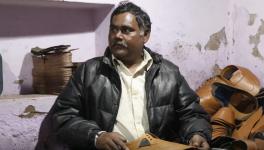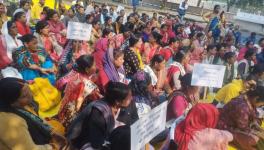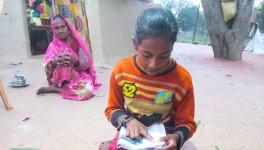Barabanki Hamlet Busts the Myth of ODF Rural India
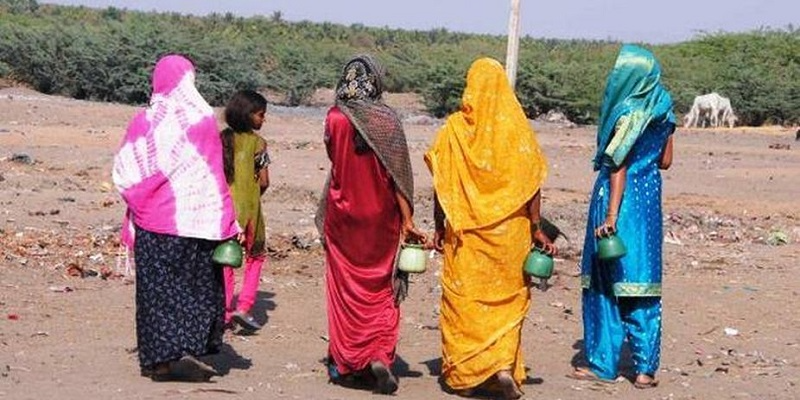
Representational Image. Image Courtesy: Yourstory
Barabanki: Anita Pal, 41, wakes up every morning at 4 o’ clock or before sunrise along with her both teenage daughters in order to find a safe place to defecate in the open.
Anita is a mother of two teenage school-going daughters and a six years old son. Being a homemaker and wife of a marginalised farmer and sheep-rearer, she cannot afford to construct a toilet in her small kutcha house.
Anita, who is busy separating rice from hulls on a foggy morning says that she was hopeful of getting a toilet constructed by the government. However, her dream was shattered when she didn’t get one, while people from the neighbouring village of upper caste population succeeded in getting the toilets built with the help of village panchayat.
Anita says, “I was a die hard fan of Modi ji and was impressed with his initiative of clean India and construction of toilets, as I was very optimistic about getting one for myself. But no, I was wrong.”
“Every mother who has a teenage, unmarried daughter is worried for the safety of her kids and I am also worried. This is the reason I go with them whenever they feel the urge to answer nature’s call—no matter what I am doing at that time or even if I am sick and not in a position to move,” she says, adding, “Shauchalay to bana hai lekin sirf deewar khadi karke chale gaye hai babu log aur seat nahi lagayi (The officials have just built a wall and have left. There is no toilet seat).”
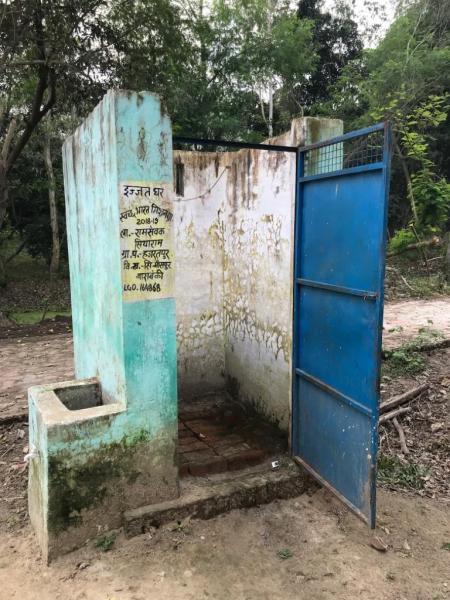
Not just Anita, but women from other 16 houses in Keratinpurvi hamlet in Barabanki district, about 60 km away from the Lucknow state headquarters follow the same ritual owing to the absence of toilets in their village.
The hamlet falls under the Hazratpur gram panchayat in Sirauli Gauspur block. According to the official data available at the Swachh Bharat Mission-Gramin website, the whole Hazratpur GP has 620 households, of which 116 did not have toilets and eight were Below Poverty Line (BPL), as per records. These toilet-less households would include the 16 households in Keratinpurvi hamlet. But the records show that in 2018-19, all of these got toilets and consequently, the whole of Hazratpur was declared open defecation-free (ODF). It is clear from this that the official data is different from ground realities.
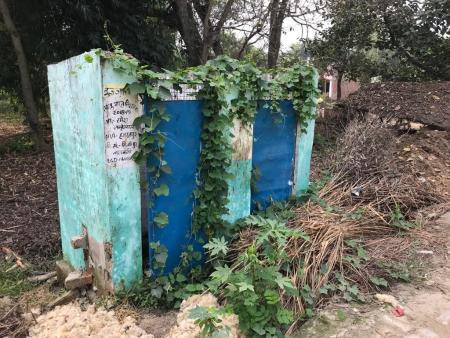
It may be mentioned that Uttar Pradesh recorded the largest number of crimes against women in the country, according to the latest data published by National Crime Records Bureau.
While the rate of ‘assault on women with intent to outrage her modesty’ stands at 21.7% in the country, a lot of victims fall prey while they step out to answer nature's call in India.
According to US health journal Bio-Med Central, “Women, who use open defecation sites like open fields or the side of a railway track, are twice as likely to get raped when compared with women using a home toilet.”
Vipin Maurya, a resident of the village says that in order to avoid embarrassment, there is an unwritten rule in the village according to which the female folks of the village go out to defecate very early in the morning and towards the Northern side of the village while the men go towards the South, but late in the morning.
Vipin, levelling corruption charges against the headwoman, said that her son, who represents his mother, has hardly spent Rs 5,000 on the construction of every toilet and has kept the rest of money with himself.
“I also know that for construction of each toilet, the government gives Rs 12,000, but Irfan Khan and her mother (son of the headwoman and headwoman) have kept the money and they do not want us to have the toilets at our houses,” Vipin said.
On being asked about the underconstructed toilets, Irfan said, “We carried out maximum construction with the available funds; the allegations of the villagers are baseless. I cannot spend the money from my own pocket for the construction of toilets in their houses. And why are they making so much hue and cry over it? They have been defecating in open since a very long time. These people from the lower castes have a habit of showing their caste in every work.”
The son of the village headwoman refused to speak further and did not allow the NewsClick team to meet his mother, saying that women in her house are not allowed to meet men outside the family.
“If they need it [the toilets], they should use their money. I will get the construction done only when I receive the funds,” said Irfan.
According to latest data available with the National Statistical Office, more than one fourth of households have no access to toilets in India. The report has come about a month after rural India was declared ODF by Prime Minister Narendra Modi.
It may also be mentioned that recently, a six-member team formed by the Central Jal Shakti Ministry was sent to ‘test and assess’ the status of Swachh Bharat Mission in Uttar Pradesh and after a survey, it found that the state still lacks more than 14.62 lakh household toilets.
Get the latest reports & analysis with people's perspective on Protests, movements & deep analytical videos, discussions of the current affairs in your Telegram app. Subscribe to NewsClick's Telegram channel & get Real-Time updates on stories, as they get published on our website.











